Imagine living your entire life as a Canadian, then suddenly finding out you’re not actually a citizen.
Consider what it would be like to grow up in Canada with Canadian parents, but then have a baby in another country and discover your child is not entitled to Canadian citizenship.
It's happened to many people over the past few decades, as Canada has changed its citizenship laws. Those laws keep changing and although most of the changes are for the better, each time it happens, someone is surprised to find out they don’t qualify for citizenship.
Don Chapman, author of The Lost Canadians: A Struggle for Citizenship Rights, Equality, and Identity, has been an advocate for the “Lost Canadians” for years, after his struggles with losing citizenship and fighting to regain it.
Loopholes in the law
Chapman warns that citizenship in Canada is not written into constitutional law. He argues the problem that has plagued Canadian citizenship for more than 100 years is that citizenship laws — which still have discriminatory loopholes — keep changing, depending on which government takes power.
“Citizenship is a constitutional right in the United States,” Chapman said in an interview with National Observer. “In Canada, it is a privilege and it’s a legislated privilege, so that means that the government — if we got a Donald Trump in Canada — could say, ‘You didn’t vote for me, I’m cancelling your citizenship.’”
Chapman said he still receives panicked calls from Canadians who turn to him for help after learning they don't have citizenship status. Having been through the ordeal of regaining status himself, he found that Canada's laws need a lot of work.
In 2007, he learned up to 200,000 Canadians were affected by arcane provisions of the law that stripped them of citizenship, often without their knowledge, and while many of these have been resolved as a result of legislation he helped create, others still are struggling with the problem.
The 'Lost Canadians' lose their citizenship status for a variety of reasons, and come from all walks of life. They include children, seniors, well-established business owners as well as vulnerable youth. Mennonites as well as Indigenous people and multi-generational Canadians born across the border.
How do you prove Canadian citizenship?
Stephanie Fenner is a classic example. She just received her citizenship last Monday, after fighting for status for years. Born in El Paso, Texas, she came with her parents at the age of three and came to Lumby, B.C. She never questioned she was a Canadian citizen, having grown up her whole life around B.C. and Alberta.
"I grew up in Canada thinking I was Canadian until I was a teenager - when I was about to get my drivers' license, my parents decided to tell me I had no paperwork," she said. Her mother was a Dutch landed immigrant in Canada and her father worked in the U.S. military, but they'd never registered her when they came to Canada.
Stephanie Fenner, 25, has lived in Canada since age 3, but she only just received citizenship in January 2018. She said she applied four times for citizenship and was rejected consistently despite having records showing she attended school and lived in Canada since an early age. Video by Jenny Uechi
Fenner says while her family was partly responsible for her lack of citizenship, she'd never imagined at age 17 that it would take her a total of eight long years, and continual rejections to applications, before she would finally get to receive citizenship.
And she wasn't alone. At the ceremony, she met Squamish, B.C. resident Byrdie Funk, who lived in Canada her entire life since she was two months old, but had also been denied citizenship due to arcane provisions of the law.
They listened to each other's stories, and shared the roadblocks they'd faced while trying to prove they were bona fide Canadians.
"You wouldn't believe how many people told me, 'Oh, well, you can just get married (to a Canadian) and that's going to solve all your problems,'" Fenner said.
"People told me that all the time too!" Funk agreed emphatically. "They're like, 'Your husband's Canadian, so that fixes it all.' It actually doesn't. Nor is that the point."
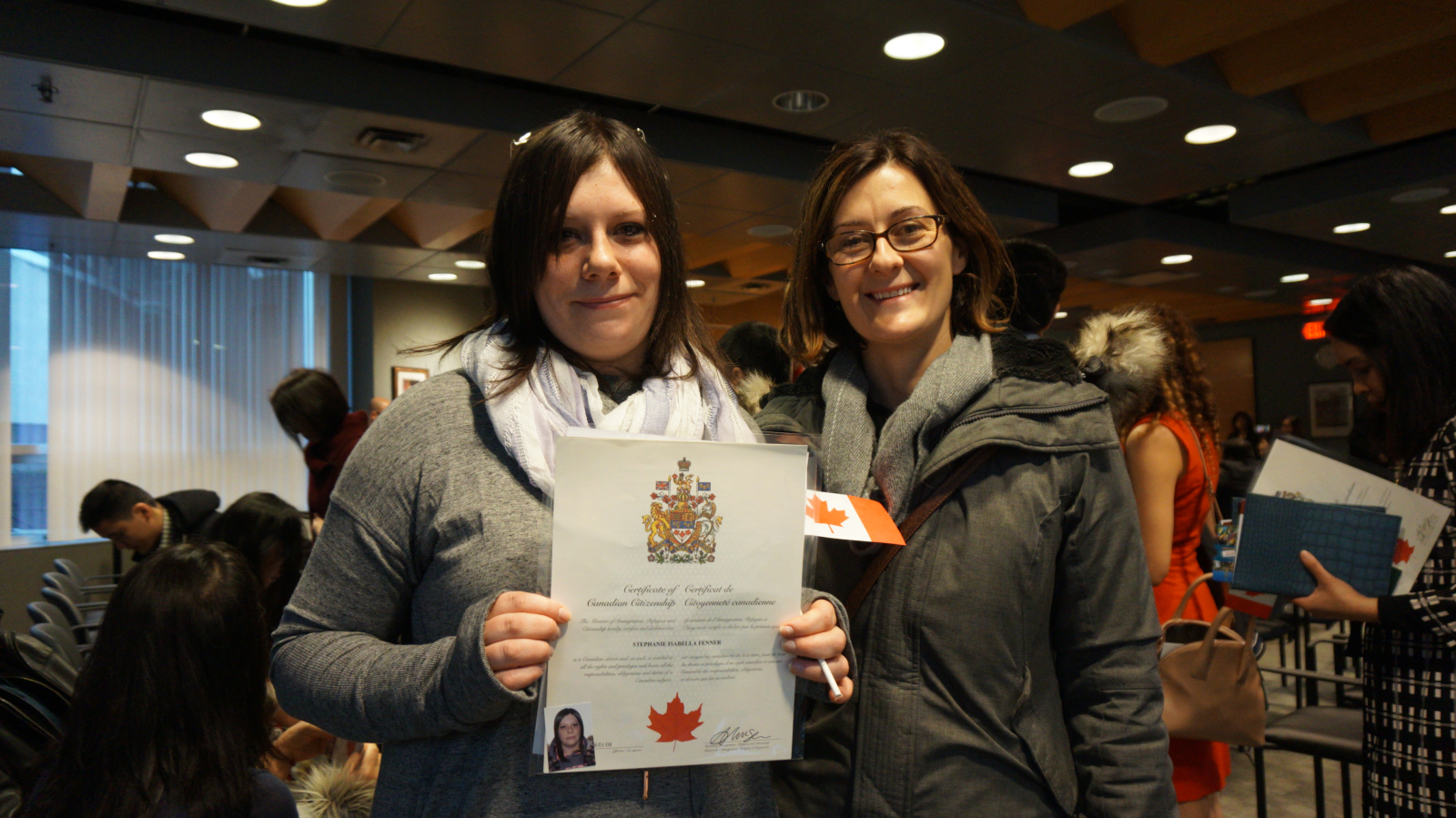
Stephanie Fenner and Byrdie Funk at a Vancouver citizenship ceremony on January 8. Photo by Jenny Uechi.
Both Fenner and Funk had substantial documentation to prove they were fully Canadian, but nevertheless were left waiting for years, during which they were essentially stateless. Fenner especially suffered, lacking heath insurance coverage since she stopped being covered under her mother's care at age 21, and having no social insurance number, meaning she couldn't work legally in Canada.
"I had to pay $200 for a tetanus shot, and that's really hard because I couldn't work," she said. "I went through a lot of hard experiences in the last eight years. I was sleeping on people's couches. I was often in situations I didn't want to be in. I had no money."
Fenner said she'd applied and been rejected four times by the Canadian government, and that instead of being accepted, she eventually started getting calls from Canadian Border Services Agency. She started to feel a real fear of being deported to a country she hadn't lived in since she was a child.
She credits her common-law husband for supporting her to get this far, and says she's looking forward to starting her new life out of the shadow of statelessness.
Fenner and Funk's years-long struggle with immigration and citizenship authorities highlights an uncomfortable reality about the murkiness of Canadian citizenship. How do Canadians prove their citizenship? In Funk's case, she had it stripped away without her knowledge in 2008, due to a provision in the law stating anyone born abroad between Feb. 15, 1977, and April 16, 1981, to Canadian parents who were also born abroad had to apply keep their citizenship by age 27 or lose her status. Funk remembers she wasn't even aware of the existence of such a rule, nor informed of it. For Fenner, she could provide documents proving she'd lived in Canada and been educated here since her earliest days, but proving Canadian status turned out to be much harder than it seemed.
"I actually think a lot more Canadians are affected than we realize. They just haven't come forward," Funk said. Just last week, a mother of four in Winnipeg got a jarring letter that she wasn't entitled have citizenship, even though her whole life was built in Canada.
Fenner had in fact received Don Chapman's contact after her friend saw a news story about Qia Gunster young man from Prince George who had been in a very similar predicament.
Many of the problems causing “Lost Canadians” have been addressed in recent legislation, but another outstanding issue is the issue of second-generation Canadians born abroad. They’re not considered Canadians, even if their Canadian parent has significant attachment to the country.
Alberta-raised woman’s daughters not eligible for citizenship
Victoria Maruyama’s two daughters, Akari, 8, and Arisa, 6, are in a different situation.
They can't get Canadian citizenship, despite the fact their mother is a Canadian citizen who grew up in Edmonton, attending public school, and then lived in Vancouver while she went to the University of British Columbia.
After graduation, she moved to Japan to teach English and make some money to pay off her student loans. She ended up staying, getting married and having Akari and Arisa.
The reason the two girls are not Canadian: Victoria was born in Hong Kong to a Canadian father and Hong Kong mother. She moved to Canada when she was just one year old, but because she was herself born abroad, she cannot pass on Canadian citizenship to her children who are also born abroad.
That’s because of the changes made in 2009, just before Akari was born, that make second-generation born abroad children ineligible for Canadian citizenship.
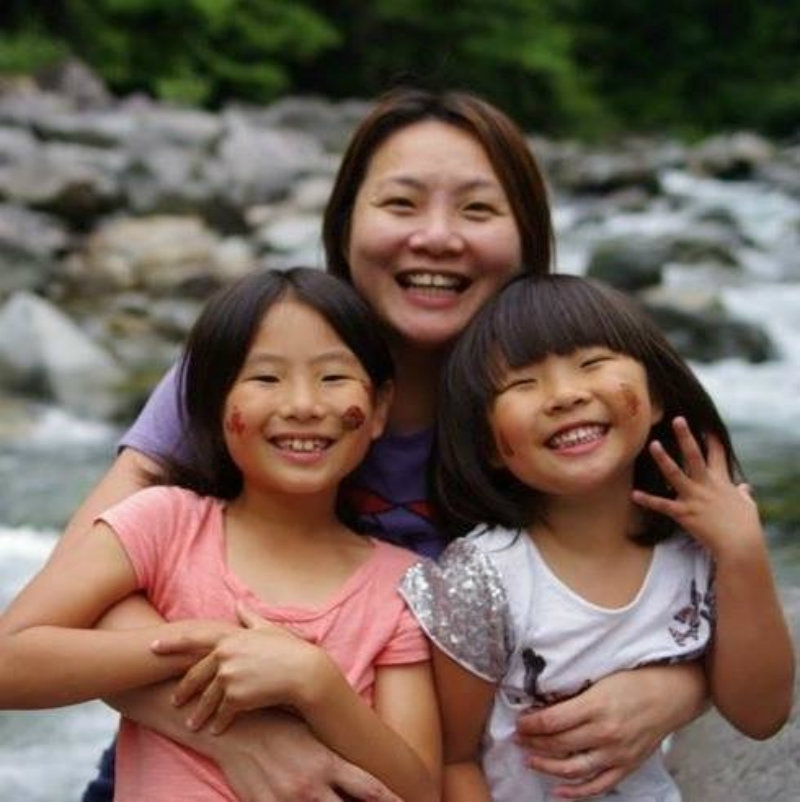
Maruyama couldn’t believe her daughters might not be considered Canadian.
“Surely this can’t apply to me … I’m as Canadian as they come,” she said. “I understand … that they don’t want to give full rights of Canadian citizenship to people who are claiming it as a backup, … but this is not what my children are. This is my home country.”
The family lives in Edmonton now, but the girls are in the country on visitors’ visas, which must be renewed every six months. They don’t qualify for medical coverage.
“We feel Canadian – we’ve been raised Canadian, but we’re not Canadian enough according to the government,” Maruyama said, adding that if she was an immigrant, her kids would be considered Canadian. “That’s the craziness there.”
She has applied again for both kids, at a cost of about $300. Her application has been in for about five months now. Her children are here in Canada as visitors, and their status runs out at the end of January. Advocates say forcing the children to leave would be a violation of the UN Convention on the Rights of the Child.
Two classes of Canadians - those born abroad lose out
Patrick Chandler, similarly, is a born abroad Canadian experiencing trouble with his children's citizenship. He was born in Libya, while his dad was a naturalized Canadian who had immigrated from Ireland. His mother was born in the United States to a Canadian mother and an Iraqi father. His great-grandfather on his mother’s side died fighting for Canada in the Second World War.
Chandler’s parents were in Libya, working as teachers. They moved home to Canada when Chandler was just two years old. He was raised in Canada and attended school here until adulthood. When he was 20, he travelled to China and ended up staying a while – about 10 years. While there, he had a baby with a Chinese woman, who is now his wife. At the time the baby, Rachel Chandler, was born, the couple were not married, which meant she was not entitled to Chinese citizenship.
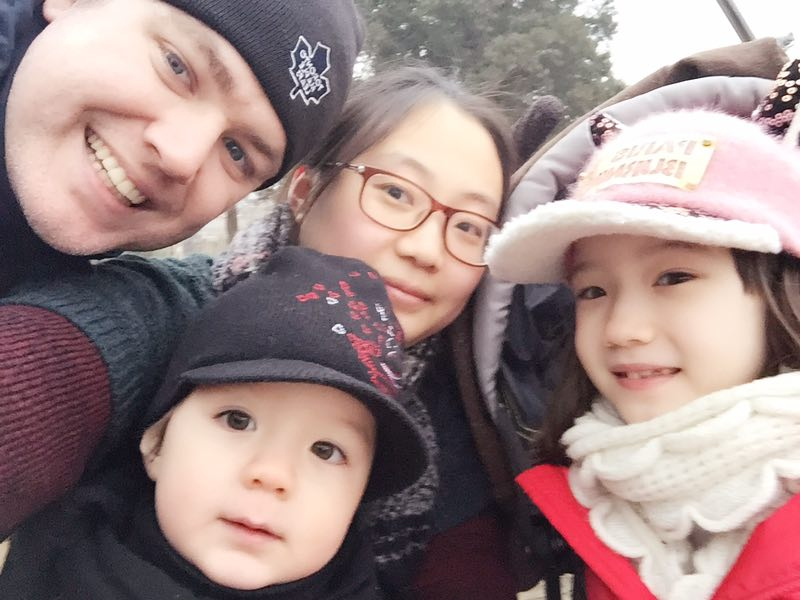
Patrick was shocked when he found out his daughter was in fact stateless. Rachel was not entitled to Canadian citizenship either, due to a change in the law made in 2009, which stated that babies born abroad, to parents who are also born abroad, are not entitled to Canadian citizenship.
“This has essentially created a second-class of citizen. I do not have the same rights written into law, as other Canadians do,” Chandler said in a recent interview with the National Observer. “I can’t pass on my citizenship to my kids if they’re born abroad. It’s a huge violation of human rights and the rights of a child."
It was the Canadian government that suggested Patrick try Ireland, the country his father emigrated from to come to Canada, because that country passes on citizenship to grandchildren. Eventually, Rachel was able to get her Irish citizenship, which seemed strange as neither she nor her father Patrick had ever lived there before.
“How absurd is that?” Patrick said.
Patrick and his wife had another baby, a son, but because they were married by the time of his birth, the son, Ryan, is entitled to Chinese citizenship.
Patrick is now working for the B.C. government and he would like to bring his family here. At the moment, they have applied to immigrate at a cost of about $1,500, using the standard channels. If they were to come on a visitor’s visa, they wouldn’t have the same rights, such as to a public education or to healthcare. In China, the family pays about $20,000 a year for private school for their daughter. She is not entitled to a public school education because she is not Chinese.
A citizenship ombudsman could help, advocates say
Both Maruyama and Chandler would like to see a citizenship ombudsman position created, so that citizenship decisions are made by a human being, rather than simply based on a check list.
Chandler would like to see a clause in the Citizenship Act that says if a citizen can demonstrate a significant connection to the country, such as living here for many years or attending school here, it doesn’t matter where they were born.
“A Canadian is a Canadian is a Canadian. You devalue the citizenship of every Canadian in this place, in this country, when you break it down and make it conditional," now Prime Minister Justin Trudeau said during an election debate in 2015.
Although he was talking about the possibility of taking away citizenship from someone who has committed terrorism, his words sound hypocritical to Canadians like Maruyama and Chandler ,who are Canadian, but not equal to others in terms of their rights to pass on their citizenship to their children.
The Ministry of Immigration, Refugees and Citizenship Canada refused to comment on any specific case. However, in a statement, they said 2009 changes to the Citizenship Act introduced a one-generation limit to citizenship by descent. Prior to then, citizenship could be passed on to endless generations born outside of Canada.
“The changes prevented the passing on of automatic citizenship to those born abroad in a second or subsequent generation who may have little or no attachment to Canada,” the ministry said in an emailed response to National Observer questions.
The ministry said children born to Canadian parents who are not eligible for citizenship at birth may be sponsored for permanent residence by their parents. Once they are permanent residents, the parents can apply for a grant of citizenship. Applicants who have been turned down for citizenship can seek leave for judicial review before the Federal Court, the ministry said.
Canada’s chance to be a ‘beacon of light’
Chapman says this could be rectified with a bill to modify the Citizenship Act, a bill that allows all first-generation Canadians who are born abroad the right to prove their substantial connection to Canada, just like an immigrant does. He says he is working on a bill that will say just that, and that will also immediately recognize any stateless child born to a Canadian parent as a Canadian.
“We can show the world we are a beacon of light – this is where we were and where we are going. We need to do a new citizenship act that is inclusive and modern… and let’s change our identity from we’re English and French to we’re Indigenous, French, English and multicultural officially, because that’s what we are,” Chapman said.
People who immigrate to Canada pass on citizenship as though they were born in the country.
The rules governing citizenship frequently change – just last week, the CBC reported that there was a 17,500 surge in citizenship applications after the government relaxed the language and residency rules. Those new rules came into effect on October 11, 2017, as a result of Bill C-6, which received Royal Assent in June.
Further changes are expected in 2018.
— with files from Jenny Uechi

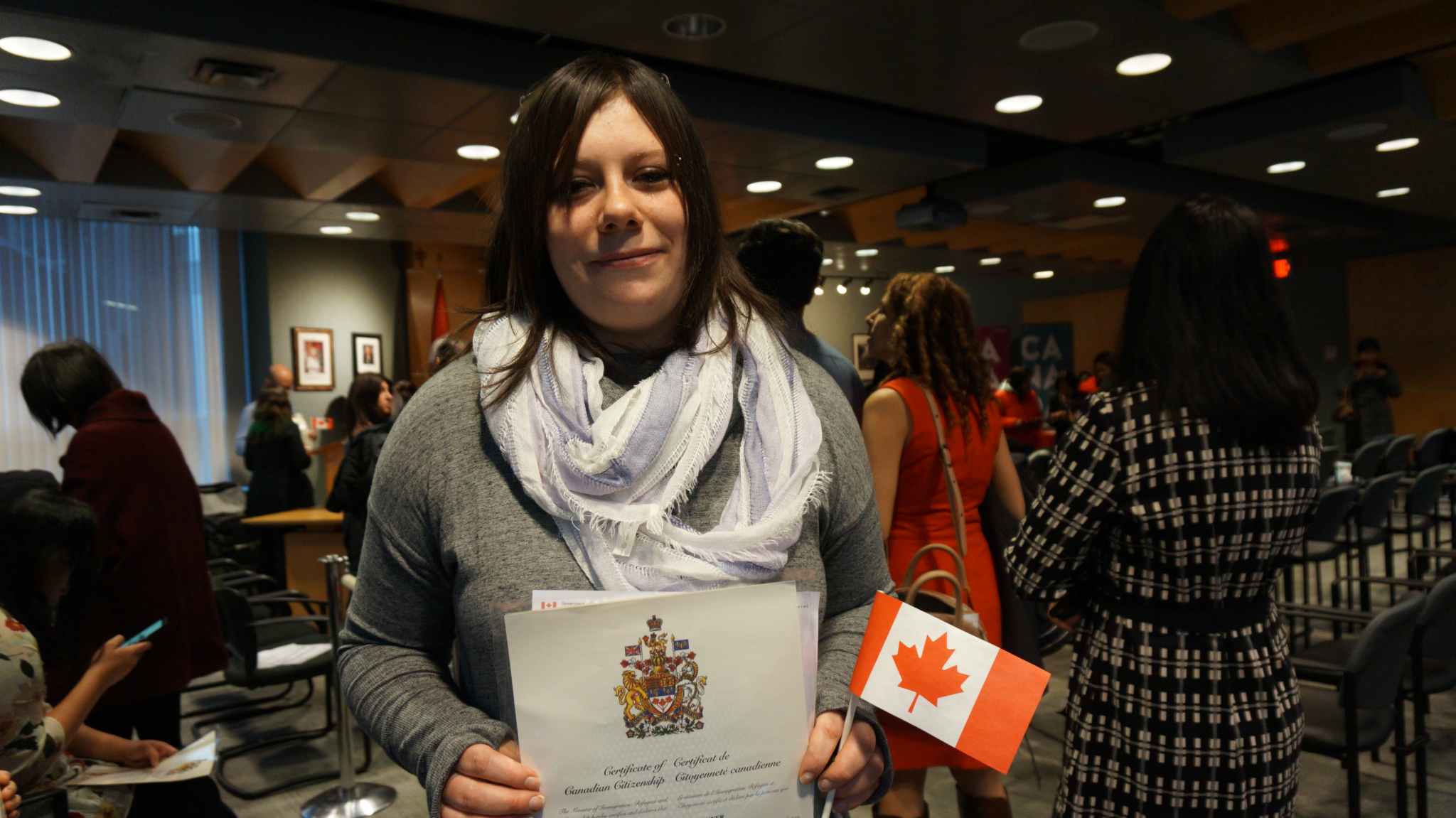

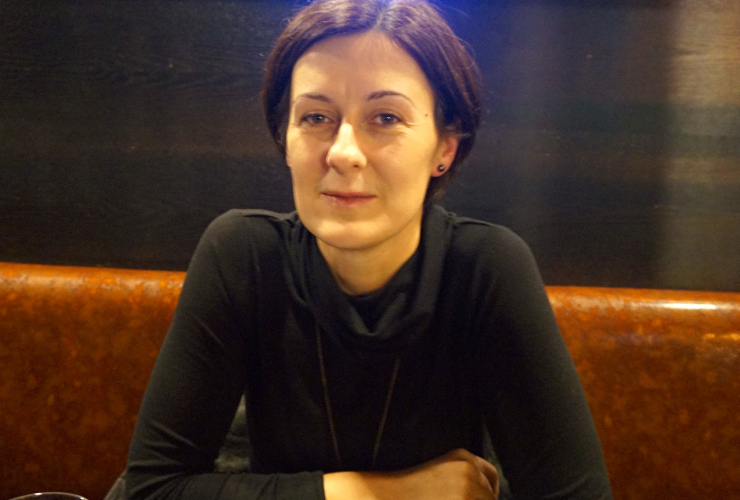
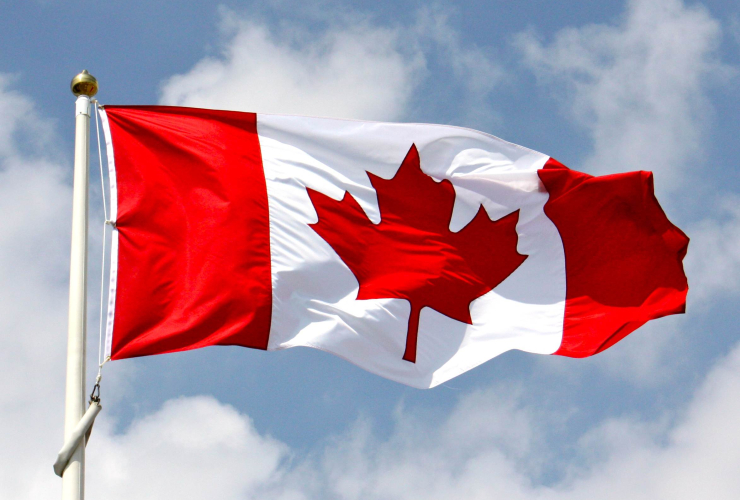
Comments